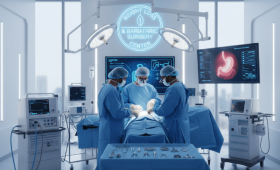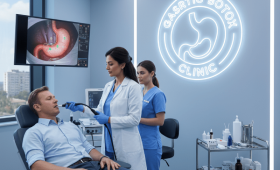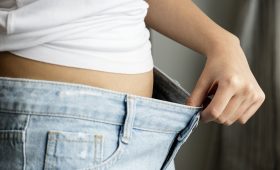How Are The First Few Days After Sleeve Gastrectomy?
The first few days after sleeve gastrectomy are spent under close medical supervision in the hospital, and this process usually lasts 2-3 days. Mild pain and discomfort immediately after the surgery are normal and are easily managed with painkillers prescribed by your doctor.
At this stage, you will only start to consume transparent liquids such as ice cubes or a very small amount of water. Nurses will encourage you to walk to reduce the risk of infection and prevent blood clots.
The feeling of mild nausea that may occur due to the effect of the surgery is also usually controlled with medication. This period represents a critical time for your body to adapt to the new situation, and it is vital to strictly follow the medical team’s instructions.
How Long Does Post-Surgery Pain Last And How Is It Managed?
Pain after sleeve gastrectomy is usually at its most intense within the first 24-48 hours, and strong painkillers are used to manage this pain. A feeling of bloating and pressure in the abdominal area is common in the first few days after surgery, but these symptoms decrease over time. After being discharged from the hospital, you may feel a mild pain that usually continues for a few more days.
Your doctor will give you a special prescription to control this pain. The complete disappearance of pain varies from person to person, but most patients can return to their normal daily activities within a week. It should be noted that pain management accelerates both your physical and psychological recovery process.
What Is The Post-Surgery Diet Plan Like?
The post-sleeve gastrectomy diet plan is designed with a gradual approach to allow your new stomach to heal and adapt, and this plan is bound by strict rules. For the first 1-2 weeks, only transparent liquids (water, broth, strained fruit juices) are consumed. This stage allows the stomach to heal. Over the next 2 weeks, a transition is made to full liquids (milk, yogurt, protein supplements). From the 4th week, pureed foods are included in the diet, and soft foods are started after about 6-8 weeks. The transition to solid foods is the last stage. Each stage allows your stomach to get used to its new volume and structure. Working with a dietitian during this process is critically important to prevent nutritional deficiencies.
When Does The Fastest Weight Loss Occur After Surgery?
The fastest weight loss after sleeve gastrectomy usually occurs within the first 3-6 months after the surgery. During this period, patients can lose a large part of their total excess weight. The main reason for the rapid weight loss is both the reduction in stomach volume and the decrease in the levels of the hormone ghrelin, which regulates appetite. This allows you to eat less and feel full for longer. However, after this rapid period, weight loss slows down. Long-term success depends on how much you stick to lifestyle changes such as diet and exercise.
Which Vitamin Supplements Should Be Used After Sleeve Gastrectomy?
Using vitamin and mineral supplements after sleeve gastrectomy is of vital importance. Since the volume of the stomach is reduced, the absorption of sufficient nutrients from food becomes difficult. The most common vitamins that need to be supplemented include vitamin B12, vitamin D, iron, calcium, and folic acid. Vitamin B12 is critical for nerve function and the production of blood cells. Vitamin D and calcium protect bone health. Iron reduces the risk of anemia. The dose and frequency of these supplements should be determined by your doctor and dietitian. Regular use of these supplements prevents long-term nutritional deficiencies.
How Long Does The Post-Surgery Recovery Process Take?
The recovery process after sleeve gastrectomy, while varying from person to person, is generally completed to a large extent within 2-4 weeks. Patients can slowly return to their daily activities within the first week after surgery. However, full recovery and a return to a normal lifestyle may take longer. Avoiding physically strenuous work and strenuous exercise is important during the recovery process. The pain and sensitivity in the incision areas will decrease over time. You need to be patient and follow the medical team’s recommendations for your body to fully adapt to this new situation and for the wound scars to heal.
How Is The Problem Of Sagging Skin After Sleeve Gastrectomy Solved?
Rapid and significant weight loss after sleeve gastrectomy can cause sagging skin in various parts of the body. This situation is especially prominent in the arms, legs, abdomen, and chest area. The solution to sagging skin usually requires cosmetic surgery operations. Operations such as abdominoplasty, brachioplasty, and thigh lift remove excess skin and provide a firmer and more aesthetic appearance. These operations are usually performed after weight loss has stabilized, which is about 18-24 months after the surgery. Regular exercise after surgery can reduce sagging to some extent by increasing muscle mass, but surgical intervention is usually the most effective solution.
Does Hair Loss Occur After Sleeve Gastrectomy?
Yes, hair loss is a common side effect after sleeve gastrectomy, and this usually begins 3-6 months after the surgery. The main reasons for hair loss are rapid weight loss, the stress the body is exposed to, and nutritional deficiencies. Inadequate intake of important nutrients such as protein, zinc, and iron can especially trigger hair loss. This condition is usually temporary, and hair starts to grow back after the body adapts to the new situation. To minimize hair loss, it is important to regularly take the protein and vitamin supplements recommended by the dietitian and to stick to a balanced nutrition plan.
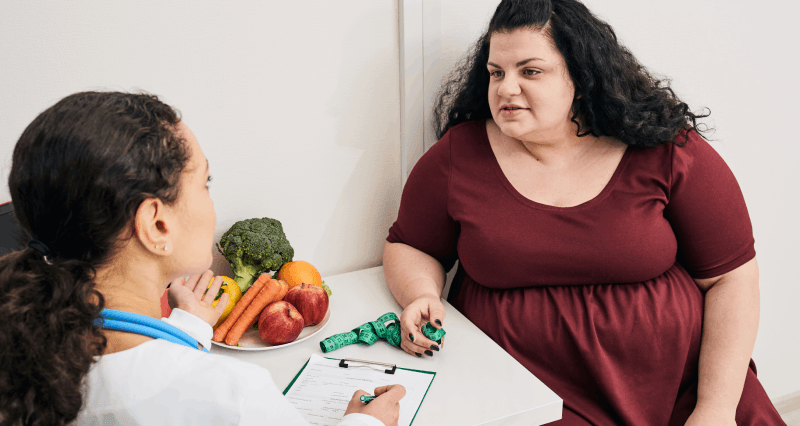
What Is Alcohol Consumption Like After Surgery?
Alcohol consumption after sleeve gastrectomy carries serious risks and is a topic that needs to be handled carefully. Since the volume of the stomach is reduced, alcohol is absorbed much faster and blood alcohol levels rise more quickly. This means that you can get drunk much faster with even a smaller amount of alcohol. In addition, alcohol is a high-calorie beverage and can cause rapid weight gain. Most importantly, it increases the burden on the liver and can damage liver health after surgery. Therefore, experts strongly recommend staying away from alcohol for the first 6 months after surgery and then consuming it in very limited quantities.
Does The Stomach Enlarge After Sleeve Gastrectomy?
Yes, stomach enlargement is possible after sleeve gastrectomy, but this condition is usually dependent on the patient’s eating habits. The stomach is a naturally elastic organ, and the habit of constantly overeating or consuming large portions can cause the new stomach to enlarge over time. The success of the surgery depends on how well the patient sticks to lifestyle changes. The enlargement of the stomach can lead to a return to weight gain and nullify the benefits of the surgery. Therefore, eating in small portions and slowly is vital for long-term success.
Are There Psychological Changes After Surgery?
Sleeve gastrectomy is not only a physical transformation but also brings about serious psychological changes. Rapid weight loss can lead to increased self-confidence and a more positive body image. However, problems such as depression, anxiety, and emotional eating can also arise. Some patients may find it difficult to give up old eating habits, and this can cause psychological stress. Changes can also occur in social life and relationships. Therefore, working with a psychologist or therapist before and after the surgery is important to manage this process more healthily.
When Is Pregnancy Safe After Sleeve Gastrectomy?
Women who are planning to get pregnant after sleeve gastrectomy are recommended to wait at least 18-24 months after the surgery. During this period, the body completes the rapid weight loss, the nutritional balance settles, and the effects of the surgery stabilize. This waiting period is critically important for the health of both the expectant mother and the baby. Before pregnancy, it is necessary to be in close follow-up with a doctor and dietitian to ensure that iron, folic acid, and other vitamin supplements are at sufficient levels. Regular medical check-ups during this process are of vital importance for a healthy pregnancy and birth.
Are There Changes In Sexual Life After Surgery?
Weight loss after sleeve gastrectomy usually has positive effects on sexual life. Obesity can often negatively affect sexual life due to low libido, hormonal imbalances, and physical limitations. Weight loss and increased self-confidence after surgery can lead to an increase in sexual desire and performance. In addition, the improvement in general health and the establishment of hormonal balance positively affect sexual functions. However, some psychological changes and body image issues after surgery can also temporarily affect sexual life. Therefore, it is important to communicate openly with your partner and get support from a therapist.
What Should The Sport And Exercise Routine Be Like After Sleeve Gastrectomy?
Exercise after sleeve gastrectomy is vital for maintaining long-term weight loss and improving general health. In the first few weeks after surgery, only light activities such as walking are recommended. After about 4-6 weeks, with your doctor’s approval, more intense exercises (running, swimming, cycling) can be started. Heavy exercises such as weightlifting should be postponed for at least 6-8 weeks to avoid damaging the stitches. Regular exercise helps to preserve and increase muscle mass, speeds up metabolism, and can improve the appearance of sagging skin to some extent.
What Is Dumping Syndrome After Surgery?
Dumping syndrome is a condition that can be seen in some patients after sleeve gastrectomy. This syndrome occurs when high-sugar or high-fat foods pass quickly from the reduced part of the stomach into the small intestine. Symptoms include stomach cramps, nausea, diarrhea, dizziness, palpitations, and sweating. This condition usually occurs 15-30 minutes after eating. To prevent dumping syndrome, it is important to avoid sugary drinks, sweets, and fatty foods, to eat in small portions and slowly, and not to consume liquids with meals.
Is Weight Gain Possible In The Long Term After Surgery?
Yes, long-term weight gain is possible after sleeve gastrectomy. The surgery provides a starting point for the weight loss process, but the key to long-term success is to strictly adhere to lifestyle changes. A slight enlargement of the stomach after surgery, a return to unhealthy eating habits, or a lack of exercise can lead to weight gain. Studies show that approximately 15-20% of patients regain some weight 5-10 years after the surgery. Therefore, regular medical follow-up and the maintenance of lifelong healthy habits are vital to preserving the benefits of the surgery.
Why Do Nausea And Vomiting Occur After Sleeve Gastrectomy?
Nausea and vomiting after sleeve gastrectomy are common side effects, especially in the first few weeks. The main reason for this is the reduction of the stomach and the process of getting used to new food intake. Eating too fast, consuming liquids during meals, not chewing food enough, or exceeding the portion size can lead to nausea and vomiting. These symptoms usually decrease as the stomach adapts to its new volume. Using anti-nausea medications recommended by your doctor and paying attention to your eating habits are important to minimize this problem.
Is The Change In Body Odor After Surgery Normal?
Yes, it is normal to experience changes in body odor after sleeve gastrectomy. During rapid weight loss, the body starts to burn fat tissue for energy, and during this process, compounds called ketones are formed. When ketones are expelled through sweat and breath, they can cause a distinct odor in some patients. This is usually a sign of ketosis (the body entering a fat-burning mode). The odor is a natural part of a healthy weight loss process and can be controlled with regular hygiene. The odor will decrease when the body reaches its weight loss goal and nutrition normalizes.
What Are The Effects of Smoking And Tobacco Use After Surgery?
The use of cigarettes and tobacco products after sleeve gastrectomy negatively affects the recovery process and carries serious health risks. Smoking narrows blood vessels, which slows down wound healing and increases the risk of infection in the surgical area. In addition, nicotine can increase acid production in the stomach, which can lead to complications such as stomach ulcers or reflux. Smoking can reduce the benefits of the surgery in the long run and increase the risk of a return to weight gain. Therefore, doctors strongly recommend quitting smoking completely before and after the surgery.
How Does Social Life Change After Sleeve Gastrectomy?
Sleeve gastrectomy can fundamentally change your social life. Your eating habits in restaurants or at friend gatherings will change, and this can lead to social pressure. Eating less or refusing certain foods can make some social situations difficult. However, weight loss and increased self-confidence can provide motivation to participate more in social activities and take up new hobbies. To manage your social life, it is important to inform your friends and family about your treatment process and ask for their support. Finding social activities that are not food-focused can help you adapt to your new lifestyle.
How Do Shopping And Dressing Habits Change After Bariatric Surgery?
Rapid weight loss after sleeve gastrectomy will completely change your dressing and shopping habits. Your old clothes will no longer fit you, and this will create the need to build a new wardrobe. This change is a great source of motivation for many patients. The reduction in your clothing size increases your self-confidence and makes you feel better about yourself. However, buying new clothes frequently due to rapid size changes can be costly. During this process, it is important to shop smartly and choose clothes that best fit your body.
How Should Nutrient Levels Be Monitored After Surgery?
Monitoring nutrient levels after sleeve gastrectomy is critically important to prevent potential vitamin and mineral deficiencies. Your doctor and dietitian will recommend that you have blood tests at certain intervals. These tests check the levels of important nutrients such as vitamin B12, iron, vitamin D, and calcium. If deficiencies are detected, supplement doses are adjusted or additional supplements are recommended. Regular medical follow-up and nutrition counseling at every stage of your weight loss journey ensure the preservation of your health. Therefore, it is important to stick to all follow-up appointments and take expert advice into account.
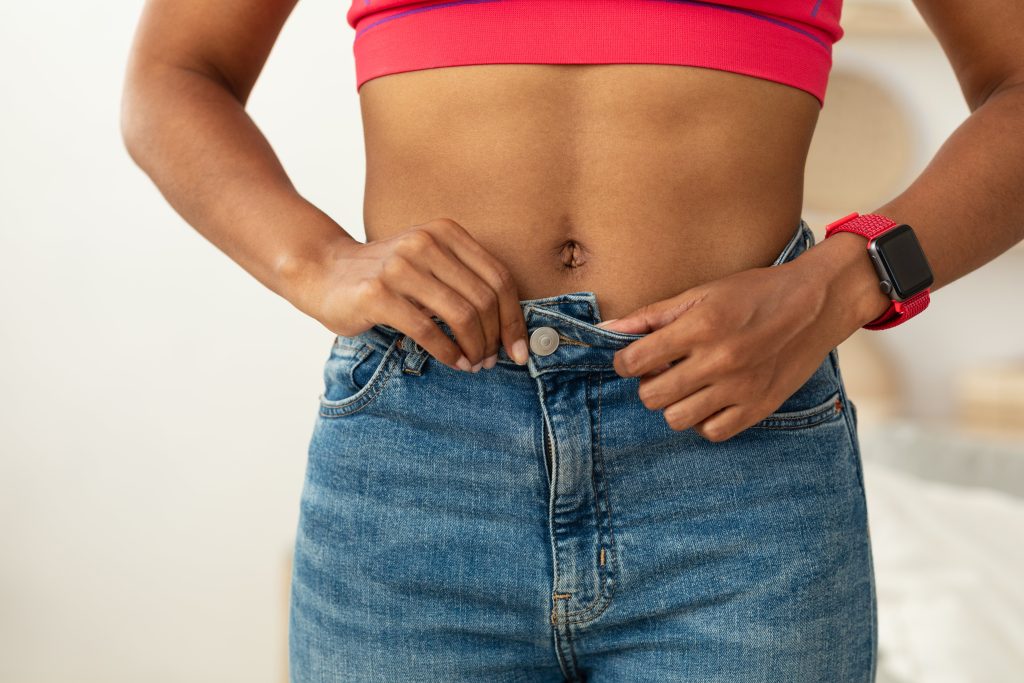
Does Heartburn And Reflux Occur After Sleeve Gastrectomy?
Yes, heartburn and reflux after sleeve gastrectomy are common problems that can be seen in some patients. Since the shape and volume of the stomach change, it can become more likely for stomach acid to flow back into the esophagus. This can be more noticeable, especially when lying down or going to bed right after a meal. To alleviate reflux symptoms, it is important to eat in small portions, stand upright for at least 30 minutes after eating, and avoid fatty, spicy, or acidic foods. Your doctor can also prescribe medication to control reflux symptoms.
Why Do Headaches And Weakness Occur After Surgery?
Headaches and weakness after sleeve gastrectomy are common side effects, especially in the first few weeks. These symptoms are usually caused by dehydration (fluid loss) and insufficient calorie intake. Ensuring sufficient fluid intake after surgery is critically important to prevent headaches. Weakness is experienced because the body’s energy balance is being reset and it is adapting to rapid weight loss. Taking enough protein and vitamin supplements can help to reduce weakness. These symptoms usually improve over time, but you should consult your doctor if they persist.
Do Obesity-Related Diseases Get Better After Surgery?
Sleeve gastrectomy can help many chronic diseases related to obesity improve or disappear completely. Conditions such as type 2 diabetes, high blood pressure, and sleep apnea show significant improvement in the first few months after surgery. Weight loss reduces insulin resistance, lowers blood pressure, and relieves pressure on the airways. These improvements allow patients to reduce or completely stop the amount of medication they use. The positive effect of the surgery on these diseases significantly increases the quality of life. Therefore, sleeve gastrectomy is not just a weight loss operation, but also an operation to regain overall health.
Is Hair Loss After Bariatric Surgery Permanent?
No, the hair loss experienced after sleeve gastrectomy is usually not permanent. This condition is a result of rapid weight loss and the physical stress caused by the surgery. While the body is trying to adapt to the new situation, hair follicles temporarily stop their growth phase. In most patients, hair loss stops 6 to 12 months after the surgery, and hair slowly starts to grow back. To support this process, it is very important to pay attention to the intake of sufficient protein, iron, zinc, and B vitamins, and to regularly use the supplements recommended by your doctor.
How Are New Eating Habits Acquired After Sleeve Gastrectomy?
Acquiring new eating habits after sleeve gastrectomy is a process that requires patience and discipline. The most important rule is to eat in small portions and slowly. It is important to chew each bite thoroughly and to spend at least 20-30 minutes on your meal. Avoiding liquid consumption during meals helps you better understand the feeling of fullness in your stomach. Prioritizing protein and fibrous foods increases the feeling of fullness and prevents muscle loss. In addition, setting regular meal times and avoiding snacks helps your new stomach work regularly. Acquiring these habits is the most important step for long-term success.
How Does Quality of Life Change After Surgery?
Sleeve gastrectomy positively affects patients’ quality of life in many ways. Physically, weight loss reduces joint pain, increases energy levels, and makes daily activities easier. The improvement or disappearance of obesity-related diseases significantly improves overall health. Psychologically, increased self-confidence and the motivation to participate in social activities make individuals feel happier and more positive. This surgery offers an opportunity not only to lose weight but also to live a more active, healthy, and fulfilling life.
How Often Should Check-Ups Be Done After Sleeve Gastrectomy?
Regular check-ups after sleeve gastrectomy are critically important for long-term success and health maintenance. In the first year, check-ups are usually done more frequently (1st month, 3rd month, 6th month, and 1st year after surgery). In these check-ups, weight loss, nutritional status, blood tests, and general health are evaluated. After the first year, check-ups are usually done once a year. These check-ups allow for the early detection of potential nutritional deficiencies or other health problems. Being in regular follow-up with an expert team helps you maintain the benefits of the surgery for life.
Is It Possible To Eat Out After Bariatric Surgery?
Yes, it is possible to eat out after bariatric surgery, but you need to pay attention to new eating habits. Ordering food in small portions or sharing a meal with a friend is a good strategy in restaurants. It is important to eat your meal slowly and chew your food thoroughly. Focusing on protein and vegetable-heavy options on the menu helps you make healthy choices. Although changing your eating habits in social settings may be difficult at first, over time you can adapt to this new lifestyle and continue to enjoy your social life.
Do Body Temperature Changes Occur After Surgery?
Body temperature changes after sleeve gastrectomy are a common condition that can occur, especially in the first few months. During rapid weight loss, the body burns fat for energy, and in this process, body temperature regulation can change. Fat tissue acts as an insulating layer for the body. Rapid fat loss can lead to a decrease in this insulation, causing patients to feel colder more easily. This condition usually improves after the body adapts to its new weight.
Is A Feeling Of Tension Or Pressure In The Stomach Felt After Sleeve Gastrectomy?
Yes, a feeling of tension or pressure in the stomach after sleeve gastrectomy is commonly felt, especially when eating. This feeling is caused by your reduced stomach and is an important signal that helps you control your portion size. If this feeling reaches an uncomfortable level, it may be a sign that you are eating too fast or too much. To manage this feeling, it is vital to take small bites, eat slowly, and not consume liquids during meals. This feeling of tension in your stomach will guide you to acquire a healthy eating habit.
How Does The Desire For Food Change After Surgery?
Sleeve gastrectomy can fundamentally change your desire for food. During the surgery, a large part of the stomach where the hunger hormone ghrelin is produced is removed. This causes a significant decrease in the feeling of hunger after surgery. Many patients report feeling less interested in food, especially in the first few months. However, this condition is not permanent, and appetite may return to some extent over time. Therefore, using this advantage provided by the surgery to establish healthy eating habits is important for long-term success.
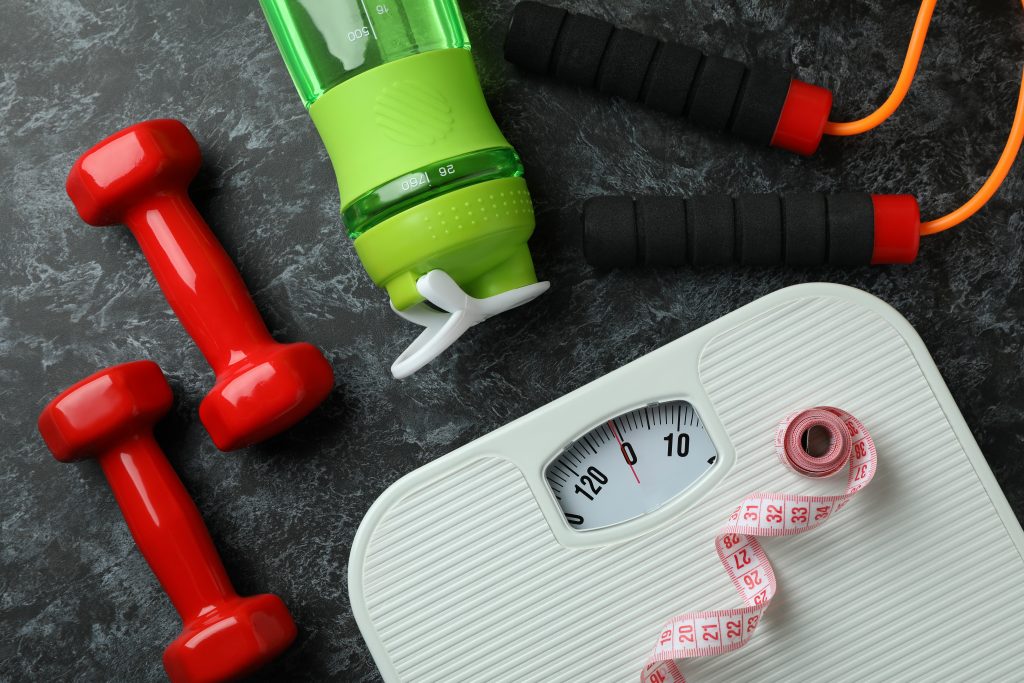
Why Is Sufficient Protein Consumption Important After Obesity Surgery?
Sufficient protein consumption after obesity surgery is critically important for preserving muscle mass and healthy weight loss. During rapid weight loss, the body can lose not only fat but also muscle. Protein is the building block of muscle tissue, and sufficient protein intake helps to minimize muscle loss. Protein also increases the feeling of fullness, which allows you to consume fewer calories. It is vital to add protein-rich foods such as protein powders, lean meat, fish, eggs, and dairy products to your post-surgery diet.
How Is Oral And Dental Health Affected After Sleeve Gastrectomy?
Oral and dental health can be affected after sleeve gastrectomy due to changes in eating habits and vitamin deficiencies. The backflow of stomach acid into the esophagus (reflux) can damage tooth enamel. In addition, nutrient deficiencies (especially calcium) can cause teeth to become weak. Therefore, regular dental check-ups, sufficient calcium intake, and a good oral hygiene routine are important after surgery. Avoiding sugary foods and rinsing your mouth with water after every meal also helps to protect dental health.
How Does Medication Use Change After Bariatric Surgery?
Medication use after bariatric surgery changes significantly with the improvement of obesity-related diseases. The doses of medications used for diabetes, high blood pressure, and high cholesterol can be reduced or completely stopped with weight loss. However, these decisions should only be made under a doctor’s supervision. The reduction of the stomach can also affect the absorption of some medications. Therefore, it is vital to consult your doctor before starting a new medication or changing the dose of existing medications after surgery.
How High Is The Long-Term Success Of Obesity Surgery?
The long-term success of obesity surgeries depends on how well you stick to lifestyle changes. Studies show that 50-70% of patients who have undergone bariatric surgery still maintain more than 50% of their excess weight 10 years after the surgery. Success is directly proportional to regular exercise, a healthy diet, and medical follow-up. The surgery is not a magic wand, but a tool on your way to a healthy life. Using this tool correctly leads to lifelong success.
How Should I Eat During The Post-Surgery Recovery Period?
Nutrition during the post-surgery recovery period is approached with a gradual approach. For the first 1-2 weeks, only liquid foods (water, broth, strained fruit juices) are consumed. In the next stage, a transition is made to full liquids such as protein supplements, yogurt, and milk. After about the 4th week, pureed foods are added to the diet, and soft foods are started after 6-8 weeks. Each stage aims for the stomach to adapt to its new volume and function. The most important thing in this process is to eat food slowly, chew it thoroughly, and consume it in small portions.
Are The Changes Experienced After Bariatric Surgery Permanent?
Most of the changes experienced after bariatric surgery are permanent, but the sustainability of these changes depends on the patient’s lifestyle decisions. The reduction in the volume of the stomach is permanent, but deviations in eating habits can cause the stomach to enlarge. Weight loss can be permanent, but if healthy eating and exercise habits are not adopted, weight gain can return. Therefore, for the benefits gained after surgery to be permanent, it is important to accept this process as a lifestyle change and maintain it for life.
Why Is Psychological Support Important After Sleeve Gastrectomy?
Psychological support after sleeve gastrectomy is as important as physical recovery. Rapid weight loss and a changing body image can affect the patient’s emotional and psychological state. Problems such as depression, anxiety, emotional eating, or eating disorders can arise. Working with a psychologist or therapist guides you to cope with the emotional difficulties that arise in this process, develop healthy coping strategies, and adapt to your new lifestyle.
Do Body Hormones Change After Surgery?
Yes, significant changes occur in body hormones after sleeve gastrectomy. With the surgery, the levels of the hunger hormone ghrelin are significantly reduced, which leads to a decrease in appetite. At the same time, the levels of hormones such as the fullness hormone GLP-1 increase. These hormonal changes are one of the most important effects of the surgery on weight loss. In patients with diabetes, insulin resistance decreases and blood sugar levels improve. These hormonal changes show that the surgery is not just a mechanical intervention but also a metabolic improvement.
When Can Cosmetic Surgeries Be Performed After Obesity Surgery?
Cosmetic surgeries after obesity surgery should be planned after weight loss has stabilized. This usually occurs 18 to 24 months after the surgery. This time is necessary for the body to fully adapt to its new weight and for the excess skin to take its final form. These operations include abdominoplasty, breast lift, arm lift, and thigh lift. Cosmetic operations are a complementary part of obesity surgery and help the patient fully achieve their new body.
Why Is Turkey A Popular Choice For Obesity Treatment?
Turkey is a popular destination worldwide for obesity treatment and bariatric surgery. The most important reasons include more affordable costs compared to other countries, modern hospitals with the latest technology, and experienced surgeons who specialize in this field. Health tourism in Turkey stands out with its high service quality and a patient-centered approach that prioritizes patient comfort. In addition, the variety of tourist attractions allows patients to combine their treatment process with a vacation.
What Kind Of Scar Remains After Sleeve Gastrectomy?
Since sleeve gastrectomy is performed using a laparoscopic (closed) method, a few small incision scars remain on the abdomen instead of a large incision. These incisions are usually 1 to 2 cm long and fade over time, becoming less visible. To minimize the appearance of the scars, it is important to protect them from sunlight during the recovery process, use the scar creams recommended by the doctor, and pay attention to post-operative care.
How Does The Sleeve Gastrectomy Process Work With Cure Holiday?
Cure Holiday offers a comprehensive health tourism experience to patients considering sleeve gastrectomy in Turkey. It manages the entire process, starting from the first pre-operative consultation, including accommodation, transfers, the surgical process, and post-operative follow-up. By collaborating with the best hospitals and expert surgeons, it ensures that patients receive the highest quality service. A dedicated assistant accompanies you throughout the entire process, so you feel safe and comfortable. By contacting Cure Holiday, you can create a personalized treatment plan, get all your questions answered, and take the first step towards a healthy life.
